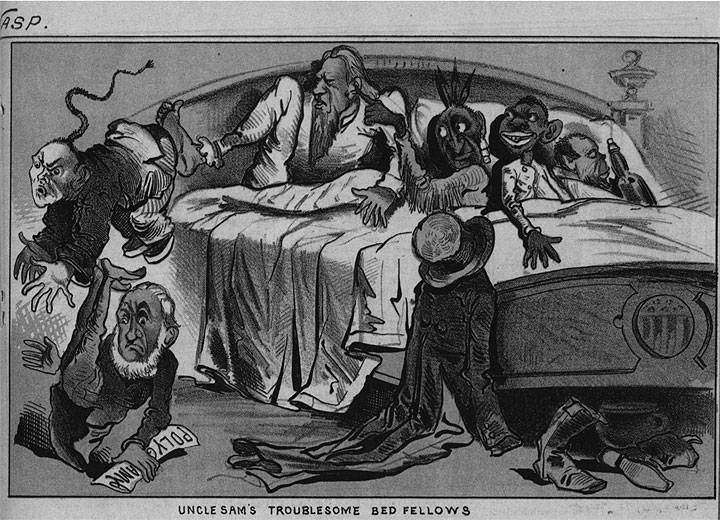1. Money
Senator Beveridge once said that it was inevitable for America to start trading because it was "producing too much"; Manufacturing was over the moon. And in the turn of the century, the nation prospered.
Now that the country had locked in their labor supply, they were running short of raw materials. Business owners with government affiliations were eyeing island nations where they could extract the jewels of trade. For example, many people, including Theodore Roosevelt wanted to annex Cuba, just off the Floridian shore. It had cheap labor, a popular product, and a great location: a triple threat and, apparently, enough to forget the fact that Cubans wanted to disassociate from the Americans as much as possible.
As a result, not only Cuba but many other island nations in the Caribbean were annexed and their resources were extracted. American companies imported spices, cigars, and dole bananas for the first time, a wonder that generated huge profits... with a cost.
During the Roosevelt era, the main goal was to prevent European powers from getting their hands Latin America. Case in point, Roosevelt published a corollary to the Monroe Doctrine that promised the US would interfere if any powers Europe interfered, in Latin America. This was part of the cost mentioned earlier. Since the United States had given itself sole control of these southern countries, they also had to foot the bill. Sending troops into nations to stomp out rebellions or do public works was incredibly expensive, especially in the Philippines and other islands, which were distant.
Enough people thought the money was worth it, especially imperialists. The industrial revolution took flight almost in parallel to Europe, a symbol that America was just as powerful, and just as entitled to do whatever the Europeans were doing. The powers' most recent endeavor was empire building, which helped them generate extreme wealth through Africa's resources. It was only a matter of time before America would be racing to grab as much land as possible and trying to acquire a scattering of island nations and South American territory.
Not all Americans were imperialists. Many simply wanted imperialism to "help" the other nations live as they did in the United States. They felt guilty that the progress the U.S. had made didn't extend everywhere, and advocated for colonization to make a uniform world. Consequently, another type of pity existed. Some people recognized the fact that these nations didn't want help, or a government, or to trade with US, but their voices were drowned with the nationalist cries to imperialize.
4. Superioriy
There was racism in America before imperialism, but with the advent of Charles Darwin's On the Origin of Species, racists now had (what they believed was) a justification for their beliefs. They indulged in the idea that white people were the best people, and that those living 3rd world nations were not because they weren't capable of creating a government. One of these WASPS in particular was John Fiske. Fiske believed that WASPS were the superior race because they had bigger brains, which he explained in his book, "The Destiny of Man."

Most Americans didn't have a say in imperialism. For those that did, the new big business dynamic and full-scale economy was fleeting enough to forget the humans involved. For others, strong prejudices and confusion of scientific evidence allowed people to sink further into their racial biases. Luckily, though at one point the idea of "empire building" was attractive to many people, we have come full circle back to where we started. We have realized that we were never meant to collect other nations for monetary value alone, and offering help to another nation should not drive it to launch rebellions against us.
Very informative post, and it is clear you spent a lot of time on it. I find the evolution of WASP attitude very creative and informative. Gold, glory, and God were the prime motivators for colonialism during the Age of Exploration, and it is interesting to see that here as well. Do you think that American Imperialist policies benefited acquired nations positively?
ReplyDeleteFor more information on the Annexation of Hawaii:
http://www.ushistory.org/us/44b.asp
This is a very good post. I like that you stated many of the reasons on why the U.S was imperialistic and went into detail and used good examples. I think that American imperialism is one of the reasons why many nations have bad feelings towards the United States, because of actions that the U.S did in those countries.
ReplyDelete